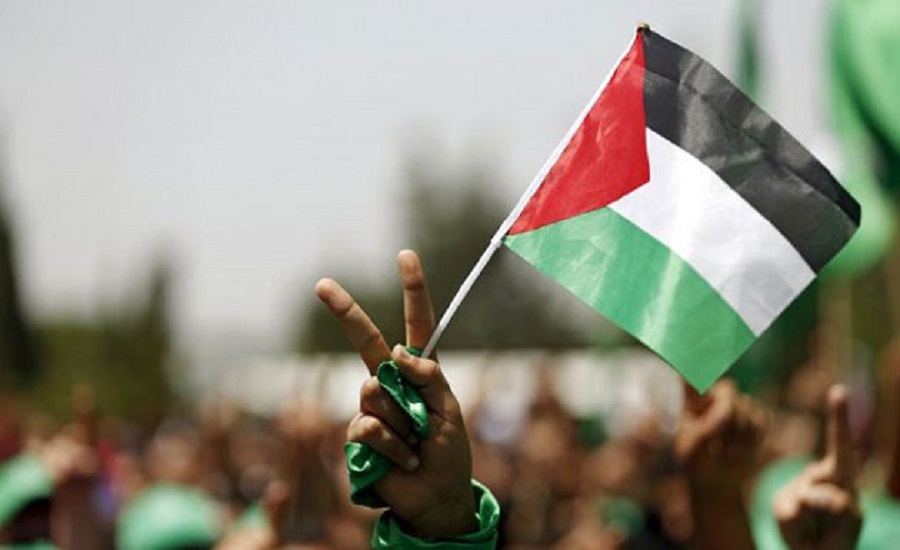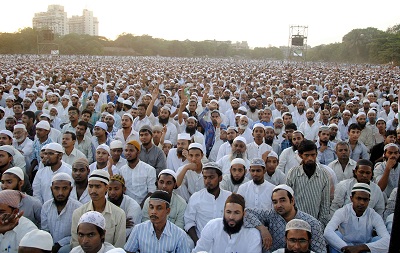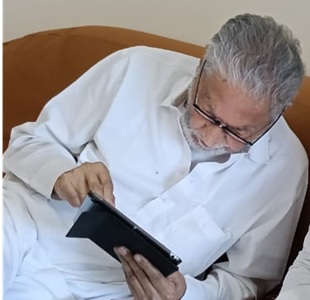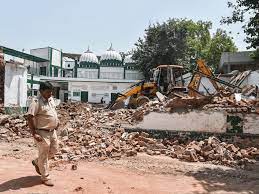Dr Javed Jamil
I said I will first like to know what “modernisation” means and I will support it only if it is related to modernisation in terms of infrastructure and not in terms of ideological issues and I would support it only if it is in consultation with the religious scholars.
A few days back, I had a telephonic call from NFTV asking me if I could be available for a debate on “Modernisation of Madrasas”. Having got my approval, the lady asked me if I was against the modernisation or in favour of it. I said I will first like to know what “modernisation” means and I will support it only if it is related to modernisation in terms of infrastructure and not in terms of ideological issues and I would support it only if it is in consultation with the religious scholars. Hearing this, she said she would be calling me again after a few minutes. No call came. Obviously, NDTV was not interested in having greater representation of those who either opposed the move or gave only a conditional approval. This sums up the entire approach of the media how it tries to advance a certain approach towards issues. This approach of course is one which is favoured by the economic and political forces of the country.
The word “modernisation” is extremely tricky. In infrastructural terms, it normally means adoption of the latest communication skills and techniques including the use of computers and internet and availability of latest techniques in teaching and studying. There is hardly any problem in this concept of modernisation. But more often than not, “modernisation” is used as a ploy to introduce modern ideologies, concepts, policies and programmes. Most of these are in keeping with the demands of the forces of economics and can easily be proved to have disastrous consequences in terms of health, family peace and social order. This aspect of modernisation will of course be totally unacceptable. The problem however is that this aspect is not filly studied in our Madrasa system.
There has been a lot of talk in recent years about the modernisation of Madrasa system. The friends as well as foes have developed a notion that Madrasas are not doing what they must do. The champions of modernism and the forces hostile to Islam want radical changes in the Madrasa system so that they do not pose threats to their interests. The intellectual Muslims cry for change because they think that the Madrasas have become irrelevant in the modern world. They feel that the introduction of English, Computer Education and job-oriented courses would help them become more suited to fulfil the needs of the community. The Islamic scholars on the other hand want Madrasas to play a more proactive role in disseminating the knowledge of Islam and to counter the growth of un-Islamic systems in the world. If Madrasas are not producing the desired results, the main reason is that the Madrasa people are not studying the developments taking place in the world in different fields and are not in a position to analyse them with the help of Islamic principles and concepts. They have failed to bring out critical studies of international concepts, programmes and policies and producing alternative Islamic models. The change has to be brought not only through introduction of the languages of communication like English and Computers but also introduction of the subjects of Applied Islamic Studies including Law, Politics, Economics, Natural and medical sciences; particularly the analysis of the world developments, policies and programmes in the light of Islamic principles.
Islam is for all times to come. Islam’s ultimate aim is to achieve peace. When Qur’an calls, “Enter Islam wholeheartedly”, it does not merely invite its adherents to follow the institutionalised system of Islam; it also beckons to them that the real, comprehensive and long lasting peace can be achieved only through total acceptance of the System of God. In Islam, peace is not just a state of absence of war or chaos in society; it has the broadest and the most comprehensive meaning, in terms of extent, depth and longevity. Thus peace has to be not just personal, not just family and not just social; it has to be at all the three levels and in the widest discernible sense. At the individual level, it does not merely mean peace of mind; it encompasses physical, mental, spiritual and social health. At the family level, it comprises peaceful relationship between the husband and wife, between the parents and children, and between children themselves. At the social level, it does not only indicate absence of war or chaos, it also means absence of all forms of crimes and social tensions, and prevalence of mutual brotherhood and justice. Peace is also not something bound by time or space; it is as much for this world as for the Hereafter; peace is eternal.
The educational, social, political and economic development of mankind must have ideally been under the premises of the Divine system. The aim of development must have been none other than the aim of Islam: attainment of peace at all levels. Unfortunately the development of modern world and modern sciences has taken place without taking into consideration the Qur’anic guidelines.
This study of all developments in the light of Islam, based on Qur’an and Sunnah, collection of required information and data and proposing of alternative paradigms is termed as Applied Islamics. Islamic scholars have time and again touched some of the related subjects. But there has not been a concerted effort to develop it as a well-defined broad discipline of social and natural sciences. This writer has been trying hard for several years to develop Applied Islamics as a full-fledged discipline and to introduce it as a part of the curriculum in all madrasas and departments of Islamic studies and theology. What is to be stressed here is that it is the new sciences and new developments are to be studied in the light of Islam and revised accordingly rather than studying and revising Islam in the light of the modern developments. Unfortunately, most Islamic scholars working in these fields have been sticking to the latter approach. We need to create a right balance in this approach. While modern sciences need to be introduced to Islamic scholars, Islamic principles also need to be introduced to the modern scientists. This however requires a thorough understanding of modern sciences as well as of Islamic sources. Applied studies of Islam may have numerable branches. But the most important are:
Islamic Sociology,
Islamic Economics or Peace Economics,
Islamic Law,
Islamic Health Sciences,
Islamic Physics,
Spiritual Sciences,
History from Islamic perspective,
Politics in Islamic perspective,
Culture in Islamic perspective,
International relations in Islamic perspective,
Literature in Islamic perspective,
Therapeutic Sociology,
Criminology, etc.
This writer, in his document, “Muslim Vision of Secular India: Destination & Roadmap” had also discussed about the need of establishing an Institute/Centre or University for the Applied Studies of Islam (or Islamics). What is to be kept in mind however is that Applied Islamics must work for the benefit of the whole mankind and not just for Muslims. Its aim must be to promote universal peace. It must not be defensive in approach but must aggressively pursue programmes and policies in different fields all over the world, and must collect data, analyze them and declare results. The results must be duly publicized. The politicians, social activists and media must be supplied with the reports and pressurised to attend to them. If Applied Islamics can develop into a really formidable subject, it can certainly contribute hugely to the attainment of universal peace under Divine Guidance.
Islam is perforce a future-oriented world-view. We should learn from our historical experiences and incorporate them in our present actions in order to make our future better. We project the glories of the past into the future through the contemplation of the present wishing to make the possible real. The solution to our past mishaps and present agonies lies in the future.
It is quite obvious that Applied Islamics is inter-disciplinary. The contemporary societies with complementary and interconnectedness used the linkages and interactions between diverse fields of learning and approaches to the discovery of new knowledge. All this has forced us to adopt a holistic and dynamic approach.
In Applied Islamics there should be no place for the purely artificial phenomenon for the division of reality into independent disciplines. The classical Islamic principle of the unity of all knowledge developed polymatics, the coherent and unified manifestation of Islamic scholarship. The contemporary and future Islamic scholars have to be the counterparts of the polymaths of classical Islam – Al-Burani, Ibn sina, Al-Guzzali and Ibn Rushed, Ibn Tufail and Ibn Bajjah. Hence Islamic pursuits in future should be regarded as the foci of advancing knowledge, having an interaction among many fields and techniques.
An inter-disciplinary approach is like an ‘intellectual-communication’ in which many disciplines cross-interact. The interaction may range from simple communication of ideas to the mutual integration of organising concepts, methodology, procedures, epistemology, terminology data and organisation of research in a fairly large field. Such an approach bears the unification of all knowledge. The existing disciplines have to be integrated into a unified body of knowledge which is the need to study complex reality.
Applied Islamics shall activate a system of concepts, ideas and values that germinate from the world-view of Islam in an effective, rational and creative way, and put it into a framework of thinking and action having a high degree of diversity.
The main objective of Applied Islamics is to develop a contemporary integrated Islamic system of thought and action that presents a genuine alternative to the present system. The task is to elaborate the world-view of Islam, within a macro- or micro-perspective, using the conceptual matrix to build viable modules and develop appropriate routes.
Had Islam been the guiding factor in the development of all sciences and advancements in various fields, mankind would have not just attained prosperity but also peace at every level. We cannot resuscitate the past. But we can certainly work for a better future. It is therefore necessary to critically analyse all the developments, campaigns, programmes and movements in all fields in the light of Islamic principles. Islam clearly lays down the principle that all developments must take place to ensure health, family peace and social order. Islam also clearly lays down guiding principles in different fields. After critically analysing these developments and programmes, endeavours should be made to develop alternative paradigms consistent with Islamic teachings. This can very well be regarded as the most lovable form of Ijtahad. And this is the kind of “modernisation” the madrasas need.
* Dr Javed Jamil is a thinker and writer with over a dozen books including his latest, “Muslims Most Civilised, Yet Not Enough” and “Muslim Vision of Secular India: Destination & Road-map”. Other works include “The Devil of Economic Fundamentalism”, “The Essence of the Divine Verses”, “The Killer Sex”, “Islam means Peace” and “Rediscovering the Universe”. He can be contacted at:
doctorforu123@yahoo.com or 91-8130340339.
https://twitter.com/javedjamil






0 Comments